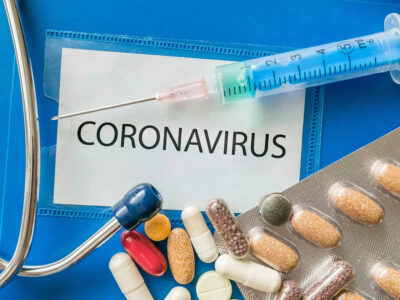
It’s the ideal opportunity for ordinary clinical specialists to demonstrate the science behind their medication by exhibiting effective, nontoxic, and reasonable patient results.
It’s an ideal opportunity to return to the logical technique to manage the intricacies of elective medicines.
The U.S. government has behind schedule affirmed a reality that great many Americans have known actually for quite a long time – needle therapy works. A 12-part board of “specialists” educated the National Institutes regarding Health (NIH), its support, that needle therapy is “unmistakably successful” for treating specific conditions, for example, fibromyalgia, tennis elbow, torment following dental medical procedure, queasiness during pregnancy, and sickness and regurgitating related with chemotherapy.
The board was less convinced that needle therapy is proper as the sole treatment for migraines, asthma, compulsion, feminine spasms, and others.
The NIH board said that, “there are various cases” where needle therapy works. Since the treatment has less incidental effects and is less intrusive than ordinary medicines, “the time has come to approach it in a serious way” and “extend its utilization into regular medication.”
These advancements are normally welcome, and the field of elective medication ought to, be satisfied with this reformist advance.
However, basic the NIH’s support and qualified “legitimization” of needle therapy is a more profound issue that should become known the presupposition so imbued in our general public as to be practically undetectable to everything except the most insightful eyes.
The presupposition is simply these “specialists” of medication are qualified and qualified for condemn the logical and helpful benefits of elective medication modalities.
They are not.
The matter relies on the definition and extent of the expression “logical.” The news is loaded with grievances by assumed clinical specialists that elective medication isn’t “logical” and not “demonstrated.” Yet we never listen to these specialists pause for a minute from their castigations to inspect the fundamentals and suspicions of their esteemed logical technique to check whether they are legitimate.
Once more, they are not.
Clinical antiquarian Harris L. Coulter, Ph.D., creator of the milestone four-volume history of Western medication called Divided Legacy, first made me aware of an essential, however unnoticed, qualification. The inquiry we should pose is whether regular medication is logical. Dr. Coulter contends convincingly that it isn’t.
Throughout the most recent 2,500 years, Western medication has been split by an amazing break between two went against perspectives on, wellbeing, and recuperating, says Dr. Coulter. What we currently call customary medication (or allopathy) was once known as Rationalist medication; elective medication, in Dr. Coulter’s set of experiences, was called Empirical medication. Pragmatist medication depends on reason and winning hypothesis, while Empirical medication depends on noticed realities and genuine experience – on what works.
Dr. Coulter mentions some alarming observable facts dependent on this differentiation. Regular medication is outsider, both in soul and construction, to the logical technique for examination, he says. Its ideas ceaselessly change with the most recent forward leap. Recently, it was microorganism hypothesis; today, it’s hereditary qualities; tomorrow, who can say for sure?
With each changing style in clinical idea, traditional medication needs to throw away its currently outdated conventionality and force the enhanced one, until it gets changed once more. This is medication dependent on unique hypothesis; current realities of the body should be reshaped to adjust to these speculations or excused as unimportant.

Specialists of this influence acknowledge a creed on trust and force it on their patients, until it’s refuted or risky by the future. They get snatched up by unique thoughts and fail to remember the living patients. Therefore, the analysis isn’t straightforwardly associated with the cure; the connection is more a question of mystery than science. This methodology, says Dr. Coulter, is “innately loose, inexact, and unsound it’s an authoritative opinion of power, not science.” Even if a methodology scarcely works by any stretch of the imagination, it’s kept on the books in light of the fact that the hypothesis says it’s acceptable “science.”
Then again, professionals of Empirical, or elective medication, get their work done: they concentrate on the singular patients; decide every one of the contributing causes; note every one of the side effects; and notice the consequences of treatment.
Homeopathy and Chinese medication are perfect representations of this methodology. The two modalities might be added to in light of the fact that doctors in these fields and other elective practices continually look for new data dependent on their clinical experience.
This is the importance of observational: it depends on experience, then, at that point, persistently tried and refined – however not reevaluated or disposed of – through the specialist’s every day practice with genuine patients. Consequently, homeopathic cures don’t become outdated; needle therapy treatment methodologies don’t become immaterial.
Elective medication is demonstrated each day in the clinical experience of doctors and patients. It was demonstrated ten years prior and will stay demonstrated a long time from now. As per Dr. Coulter, elective medication is more logical in the most genuine sense than Western, alleged logical medication.
Unfortunately, what we see extremely regularly in traditional medication is a medication or method “demonstrated” as viable and acknowledged by the FDA and other definitive bodies possibly to be repudiated a couple of years some other time when it’s been shown to be harmful, breaking down, or destructive.
The pride of traditional medication and its “science” is that substances and techniques should pass the twofold visually impaired review to be demonstrated successful. Be that as it may, is the twofold visually impaired technique the most suitable approach to be logical with regards to elective medication? It isn’t.
The rules and limits of science should be reconsidered to incorporate the clinical nuance and intricacy uncovered by elective medication. As a testing technique, the twofold visually impaired review analyzes a solitary substance or method in separated, controlled conditions and measures results against an idle or void strategy or substance (called a fake treatment) to be certain that no emotional elements disrupt everything. The methodology depends with the understanding that solitary variables cause and opposite disease, and that these can be concentrated alone, inappropriately and in segregation.
The twofold visually impaired review, albeit taken without basic assessment to be the best quality level of present day science, is really deceptive, even futile, when it is utilized to concentrate on elective medication. We realize that no single factor causes anything nor is there a “sorcery slug” equipped for without any help switching conditions. Different components add to the rise of a disease and various modalities should cooperate to create recuperating.
Similarly significant is the arrangement that this assortment of causes and fixes happens in individual patients, no two of whom are indistinguishable in brain science, family clinical history, and organic chemistry. Two men, both of whom are 35 and have comparable influenza side effects, don’t really and naturally have a similar medical issue, nor should they get a similar therapy. They may, however you can’t rely on it.
The twofold visually impaired technique is unequipped for obliging this level of clinical intricacy and variety, yet these are physiological unavoidable issues facing everyone. Any methodology professing to be logical which needs to prohibit this much exact, genuine information from its review is obviously false science.
From a significant perspective, the twofold visually impaired technique can’t demonstrate elective medication is viable in light of the fact that it isn’t sufficiently logical. It isn’t wide and unobtrusive and complex enough to include the clinical real factors of elective medication.
In the event that you rely upon the twofold visually impaired review to approve elective medication, you will wind up doubly dazzle about the truth of medication.
Listen cautiously the following time you hear clinical “specialists” whimpering that a substance or technique has not been “deductively” assessed in a twofold visually impaired review and is in this way not yet “demonstrated” successful. They’re simply attempting to deceive and scare you. Ask them how much “logical” confirmation underlies utilizing chemotherapy and radiation for malignant growth or angioplasty for coronary illness. The truth of the matter is, it’s tiny.
Take a stab at turning the circumstance around. Request of the specialists that they experimentally demonstrate the adequacy of a portion of their gold mines, like chemotherapy and radiation for malignant growth, angioplasty and sidestep for coronary illness, or hysterectomies for uterine issues. The adequacy hasn’t been demonstrated on the grounds that it can’t be demonstrated.
There is no need at all for specialists and buyers of elective medication to stand by like petitioners humbly for the logical “specialists” of customary medication to give out a couple of deigning pieces of true endorsement for elective methodologies.
Maybe, knowing residents ought to be requesting of these specialists that they demonstrate the science behind their medication by exhibiting effective, nontoxic, and reasonable patient results. In the event that they can’t, these methodologies ought to be dismissed for being informal. All things considered, the confirmation is in the fix.








